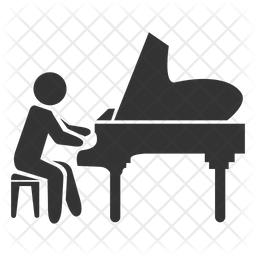
Think about the way a recorded accompaniment might affect the delivery of the overall performance, including the balance of sound. While the choice of accompaniment does not affect the way the exam is assessed, it may affect the candidate’s performance and therefore the marks they receive. Where there are tempo changes in pieces, careful and regular practice with a recording can help candidates to become familiar with them, but sometimes live accompaniment is a better option.Įxaminers assess all Performance Grade exams in exactly the same way using the same marking criteria. Music in a groove or with a constant pulse may be easier to perform with a recorded accompaniment than a piece with tempo changes or rubato. Recorded accompaniments can suit some musical styles better than others. Think about which form of accompaniment to use for each piece, considering the marking criteria for the ‘pieces’ and how the accompaniment affects the ‘performance as a whole’. The decision will be influenced by a number of things, such as the instrument, level of exam and style of music. If you can’t find the answer you’re looking for, try our Performance Grade FAQs.Ĭhoosing between live and recorded accompanimentĬhoose the accompaniment option that works best for the candidate’s circumstances and choice of repertoire and that will help them to achieve the best musical outcome in their performance. Additional guidanceĬhoose a link below for detailed guidance on using recorded accompaniment in Performance Grades.

We advise against live-streamed accompaniment because of possible sound delay and connection problems.

Specially-created recordings made for the candidate by a pianist or duet partner – this is the option we recommend as these recordings can be made to match the candidate’s musical choices – such as tempo, dynamics and breathing – and may be more likely to lead to a successful performance than commercial recordings.Read our news story to find out why we have introduced this option. Recorded accompaniment is now a permanent option for Performance Grades. EVALUATION: Performance of this job will be evaluated by the building principal with input from the supervising teacher.Candidates must have accompaniment for all pieces or songs that are published with an accompaniment or duet part, unless the syllabus listing says otherwise.įor Performance Grades candidates can choose from: TERM OF EMPLOYMENT: 7.5 hours/day, 9 months/year (benefits-eligible) The worker is not substantially exposed to adverse environmental conditions. Minimum standard based on the criteria of accuracy and neatness of work for teachers.ġ1. Frequent changes in position may be required.ġ0. The work requires sitting, standing, bending, kneeling, and/or stooping. Medium work: Must move objects or the human body by exerting up to 50 pounds of force occasionally, and /or up to 20 pounds of force frequently, and/or up to 10 pounds of force constantly. Repetitive motions: Substantial movements (motions) of the wrists, hands, and/or finger.ĩ. Hearing: Ability to receive detailed information through oral communication.Ĩ. Feeling: Perceiving attributes of objects such as size, shape, temperature or texture by touching with skins, particularly that of fingertips.ħ. Grasping: Applying pressure to an object with the fingers and palm.Ħ. Fingering: Picking, pinching, typing/keyboarding or otherwise working primarily with fingers rather than with the whole arm or hand.ĥ. Reaching: Extending hand(s) and arm(s) in any direction.Ĥ. Hearing: Ability to receive detailed information through oral communication.ģ. Talking: Expressing or exchanging ideas by means of the spoken word.Ģ. Informs the Director when repair and/or tuning is needed for department pianos.ġ.
PIANO ACCOMPANIST PROFESSIONAL
Serve as a professional musical mentor for students.īe prepared to play notes and accompaniment accurately for all music.Īccompany choirs at all performances, assist at concerts as needed.Īssume responsibility for maintaining classroom control when the supervising teacher is out of the classroom for short periods of time.Ĭommunicate effectively with supervising teacher about classroom and student issues, and communicates with students in a manner that supports learning.Īccompanies and teaches individuals, sections, and entire choirs.Īssists the Director in taking accurate daily attendanceĪssists the Director in maintaining an updated choral library.

Perform clerical duties and record keeping as assigned by the teacher. Under supervision of licensed teacher, prepare for classroom rehearsals. JOB GOAL: The Accompanist will provide musical accompaniment forĬhoral classes and performances, as well as act as a support to the choral program and students.


 0 kommentar(er)
0 kommentar(er)
